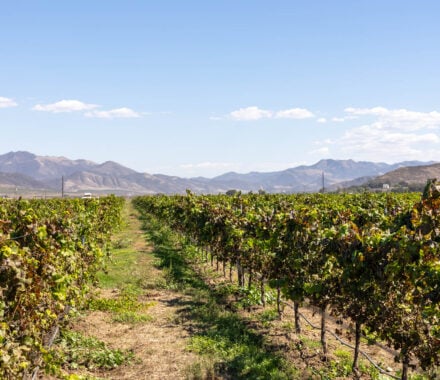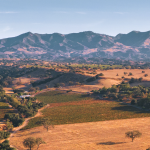There’s more to Santa Maria Style Barbecue than the main course. Indeed, in addition to seasoned tri-tip or top block sirloin, no Santa Maria barbecue meal is complete without a side of locally grown pinquito beans. Pinquitos are small pink beans that are native to the Santa Maria Valley, and that remain a commercial crop exclusive to the Central Coast. To get the ground-level scoop on these little beans, we spoke with John Porter of Alamo Farming in Santa Maria, whose family has been growing pinquitos for three generations.
You come from a longtime local farming family—when and how did pinquitos become one of your family’s specialties?
My grandfather started growing pinquito beans in the mid 1950s when a friend of his brought him a small amount of beans from Mexico, he thought they would be perfect for his barbecue restaurant (note: the friend was George Knott, of Jocko’s Steak House fame). From then on, it has been a family tradition for the Porter family in the Santa Maria Valley, going on three generations. Pinquitos have become a perfect addition to Santa Maria Style Barbecue menu.
Can you describe the growing season of pinquito beans, and how they are harvested?
Planting takes place in mid to late May, Growing takes around 120 days, and harvest takes place in late September. Harvest is done with a specialized bean harvester, and also needs to be done when the weather is warm and dry. Santa Maria has the perfect climate for Pinquito beans .
How many acres of pinquitos do you grow, and to whom do you sell your beans?
We grow 25 to 50 acres per year in the Santa Maria Valley. They are grown, harvested, cleaned, and supplied to customers like Susie Q’s Brand, Jocko’s Restaurant, J.R.’s Drive-In, Rancho Bowl, and other individuals in the Santa Maria Valley, along with customers in Texas and Arizona.
Thanks, John! To watch John harvesting pinquito beans, click here to watch a Santa Maria BBQ segment produced by California Country Television (see video at bottom of page). Also, click here for more information on pinquito beans.



